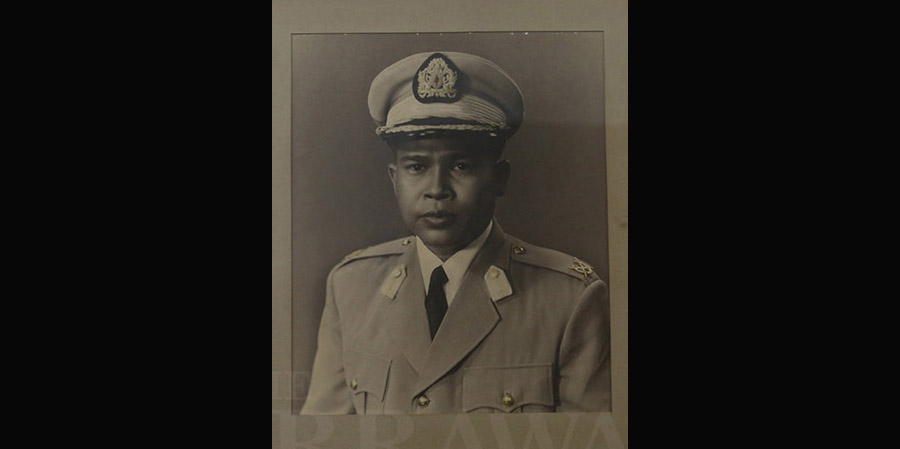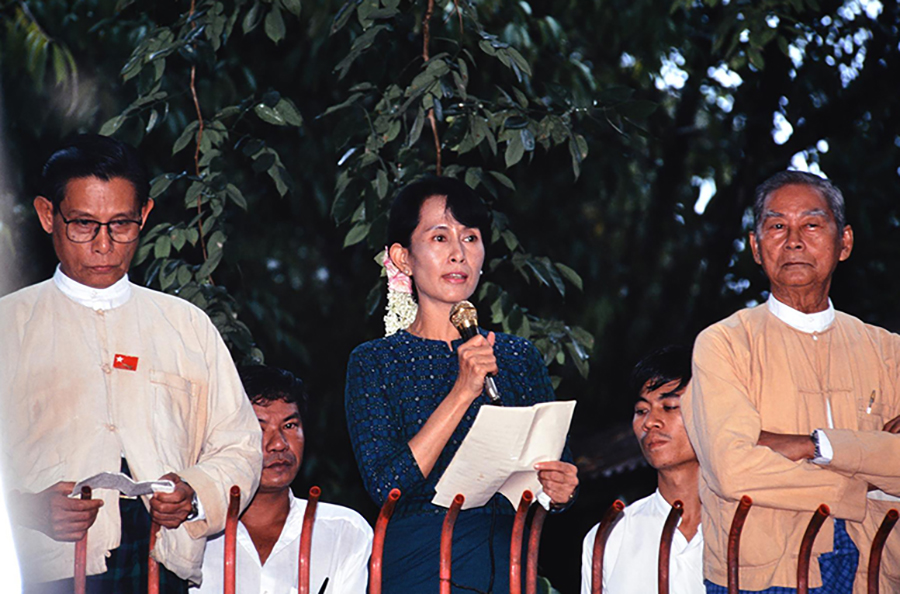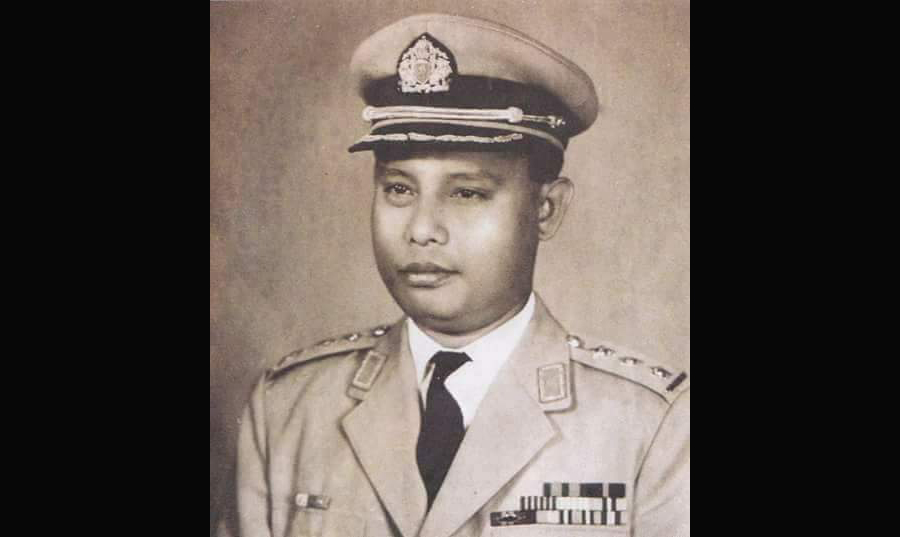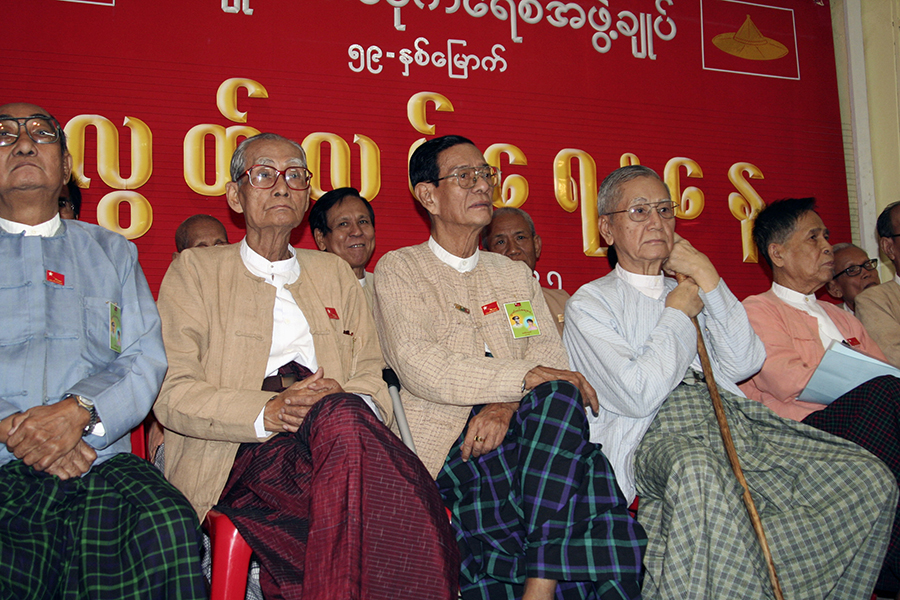YANGON — When they received an ultimatum from the Union Election Commission (UEC) in December 1991, both the National League for Democracy (NLD) acting chairman U Aung Shwe and secretary U Lwin faced a dilemma. They were told to expel Daw Aung San Suu Kyi from the party or dismantle the NLD. The reason, according to the then military regime, was her connection with armed insurgent groups and the receipt of aid indirectly from abroad.
With Daw Aung San Suu Kyi and NLD chairman U Tin Oo under house arrest at the time, it was a hard choice for U Aung Shwe. He didn’t want to see the party shut down under his leadership. So, he followed the UEC order and faced serious criticism from NLD sympathizers at home and abroad. To the junta’s delight, party members were divided on the issue, as the chairman also made a series of follow-up expulsions, including U Tin Oo, from a list handed down by military rulers. Mass resignations followed. On the other hand, the party still legally existed, at least. U Aung Shwe said he acted as he did for the party’s survival.

After Daw Aung Suu Kyi and U Tin Oo were released from house arrest in 1995, the pro-democracy icon resumed her position as NLD general secretary while U Tin Oo assumed the role of vice chairman. Daw Aung San Suu Kyi once described U Aung Shwe and U Lwin, a former colonel and the father-in-law of current President U Htin Kyaw, as the “guardians” of the NLD’s survival while the party was under fierce pressure and threats from authorities.
With the death of U Aung Shwe, the 99-year-old ex-brigadier general, on Sunday, the party has lost its second to last guardian. U Kyi Maung and U Lwin died in 2004 and 2011, respectively, and only U Tin Oo, the former general, is still alive. But he was admitted to the hospital in May after suffering a stroke. He is now 90.
Ironically, despite its long defiance against military rule in the country, all four of the NLD guardians served in the army. They joined as young men, and some fought against the British and Japanese for the country’s independence. They served as general, brigadier and colonel until they were forced to retired by the then dictator Ne Win after he came to power in 1962.
Since the NLD formation after the popular uprising in 1988, they joined the party as members of the Patriotic Old Comrades League—one of three founding factions of the main opposition party. In spite of being initially being regarded as turncoats, history has proved that they were caretakers of the party who managed to keep the NLD going, especially in the 1990s and 2000s when the military regime tried its best to quash the party. They are politically humble NLD supporters and followers of Daw Aung San Suu Kyi who never took credit for their actions. The Lady knows this.
When Daw Aung San Suu Kyi and U Tin Oo were first put under house arrest in 1989, U Kyi Maung, a former colonel, took over the leadership of the party and helped steer it to its landslide victory in the 1990 election while empowering the party’s youth. But a few years later, he fell out with Daw Aung San Suu Kyi and in 1997, he quit politics altogether.

The NLD faced another life-or-death situation in early 2010 while the Lady was under house arrest again: register for the military-organized general election or face extinction, as the regime would no longer deem the party legally valid.
U Tin Oo, the vice chairman, decided against taking part in the election, citing the election laws as unjust. When a vote was held on whether or not to join, his faction won. The election turned out to be rigged and the NLD still enjoyed popular support despite its refusal to register for the polls.

Controversial Figures
For all of their top positions since the formation of the NLD, the guardians didn’t easily win the hearts and minds of the majority of party members. Their military backgrounds didn’t impress the party’s young membership, as they had joined the NLD out of hate after their bitter experiences during the army’s bloody crackdown in the 88 Uprising.
“We only thought of Daw Aung San Suu Kyi as our leader. For us, they were from the Patriotic Old Comrades League. We didn’t see them as among us,” recalled Ko Zaw Aung, who was then a member of the NLD Central Youth Working Committee.
He remembered that their youth members were rarely patient with the older members at meetings as “they always took everything into consideration.”
When U Kyi Maung became the chairman in 1989, they welcomed him cautiously. They once frustrated their new leader at a meeting by calling him a turncoat. The ex-colonel was mad enough to slam the table in front of him, the former youth member said.
“But later, he built trust among young people by empowering them—which led to the NLD’s victory in the 1990 election,” he explained.
Monywa Aung Shin, the editor of the party’s newspaper D-Wave, called U Aung Shwe a good leader despite controversies around him for expelling Daw Aung San Suu Kyi.
“He took a flexible, defensive line that kept our party alive amid the junta’s oppression. He knew when to move forward and when to retreat,” he said.
“Both U Aung Shwe and U Lwin calmly managed to move the party forward,” he added.

Ko Zaw Aung couldn’t agree more with what Monywa Aung Shin said. The 48-year-old social researcher told The Irrawaddy that when he learned about the expulsion, he was upset and thought, “How dare they do that.”
But later, he realized it was for the party’s survival. And there was good reason to believe so.
When Daw Aung San Suu Kyi and U Tin Oo were released in 1995, many thought U Aung Shwe would be punished for the expulsions.
But on their first meeting, the ex-brigadier general told the Lady: “Suu Suu, I hand the party back to you.”
To many people’s surprise, Daw Aung San Suu Kyi replied, “It’s OK, Uncle. Let’s work together as we did before.”
The junta’s plan to divide the NLD proved to be fruitless.
Setting Good Examples
Despite the initial controversies that they brought, nobody can deny the fact that the guardians were men of vision who understood what they needed to do to move the party forward while standing at the forefront of Myanmar’s struggle to democracy.
“The current military leaders should learn how their seniors led toward the country’s democracy movement,” Ko Zaw Aung said.
He added, apart from learning, they should collaborate more with Daw Aung San Suu Kyi for democratic transition.
“If they do, the army will go down in history for their graceful participation in the country’s reform.”

















